ASTM A182 F430
ASTM A182 F430 Stainless Steel Flange
ASTM A182 F430 Stainless Steel Flanges are manufactured from ferritic stainless steel Grade 430 (UNS S43000), designed primarily for high-temperature and mildly corrosive applications. This alloy contains 16–18% chromium, offering excellent oxidation resistance, moderate corrosion resistance, and good mechanical properties.
At Emirerri Steel, we supply precision-engineered ASTM A182 F430 flanges that meet international standards for strength, reliability, and durability. These flanges are ideal for industrial environments such as chemical plants, power stations, refineries, and automotive exhaust systems where corrosion and scaling resistance are crucial.
Key Features
Excellent oxidation and scaling resistance up to 870°C
High chromium content ensures improved corrosion resistance
Magnetic ferritic structure with good formability and machinability
Resistant to stress corrosion cracking in non-chloride environments
High thermal conductivity and low thermal expansion
Suitable for moderate mechanical strength applications
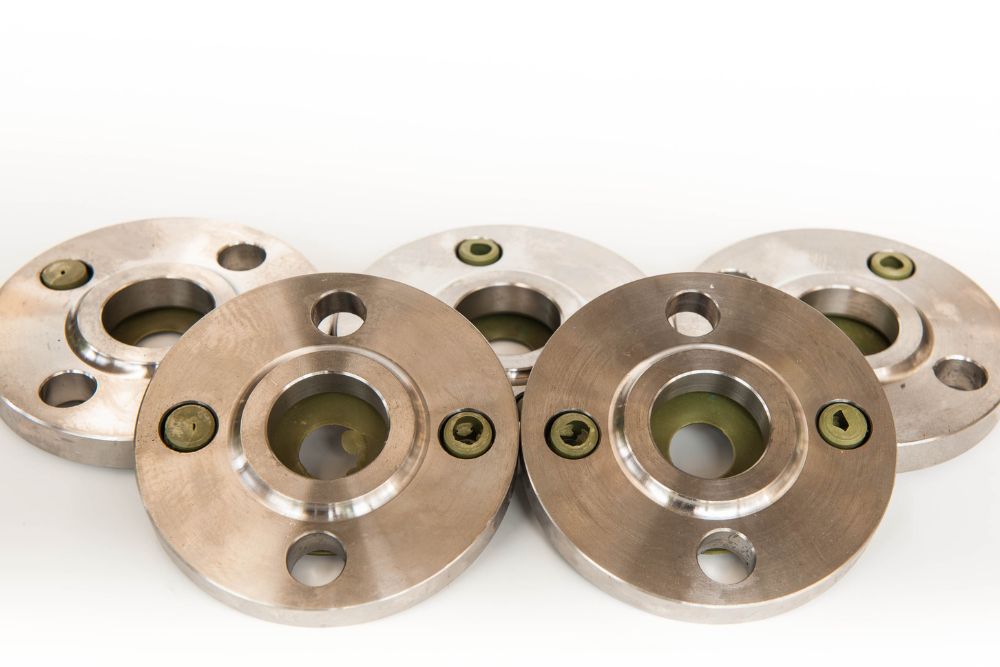
Type of Flanges
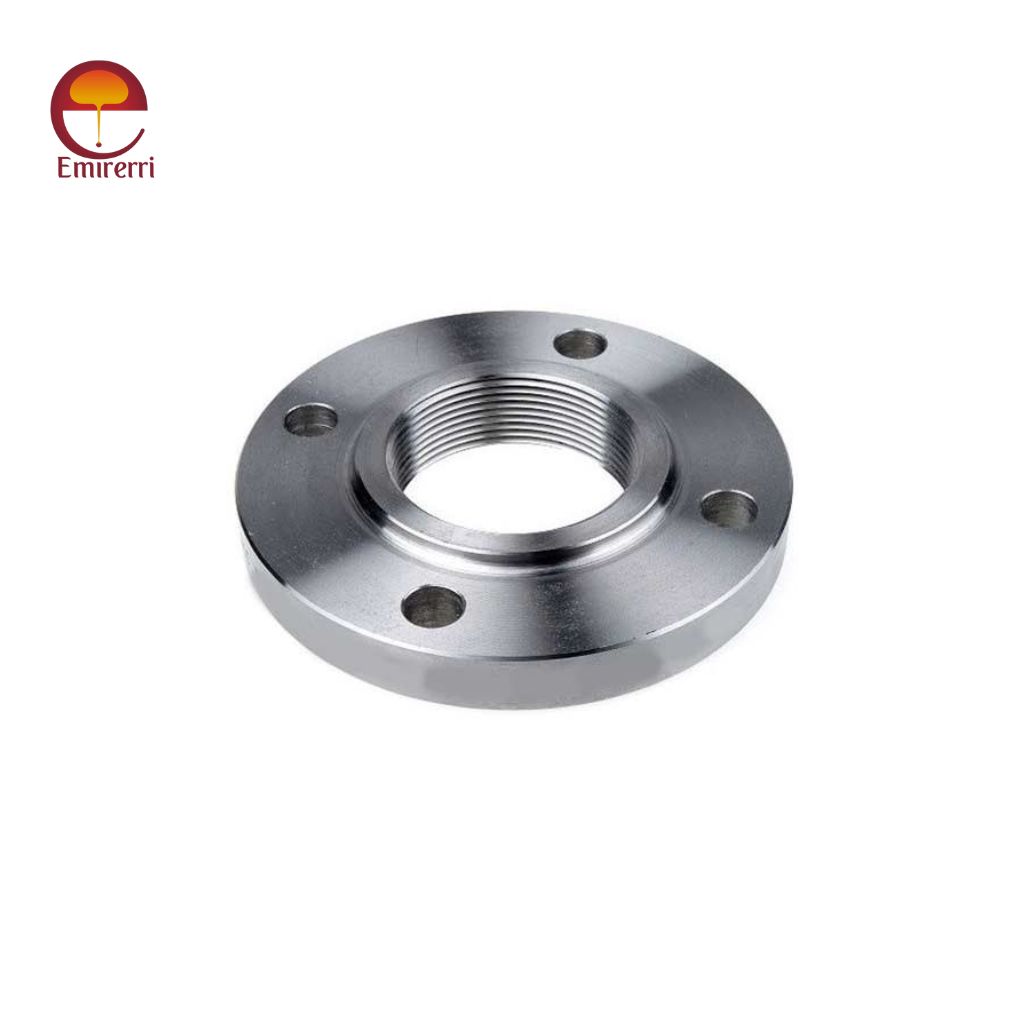
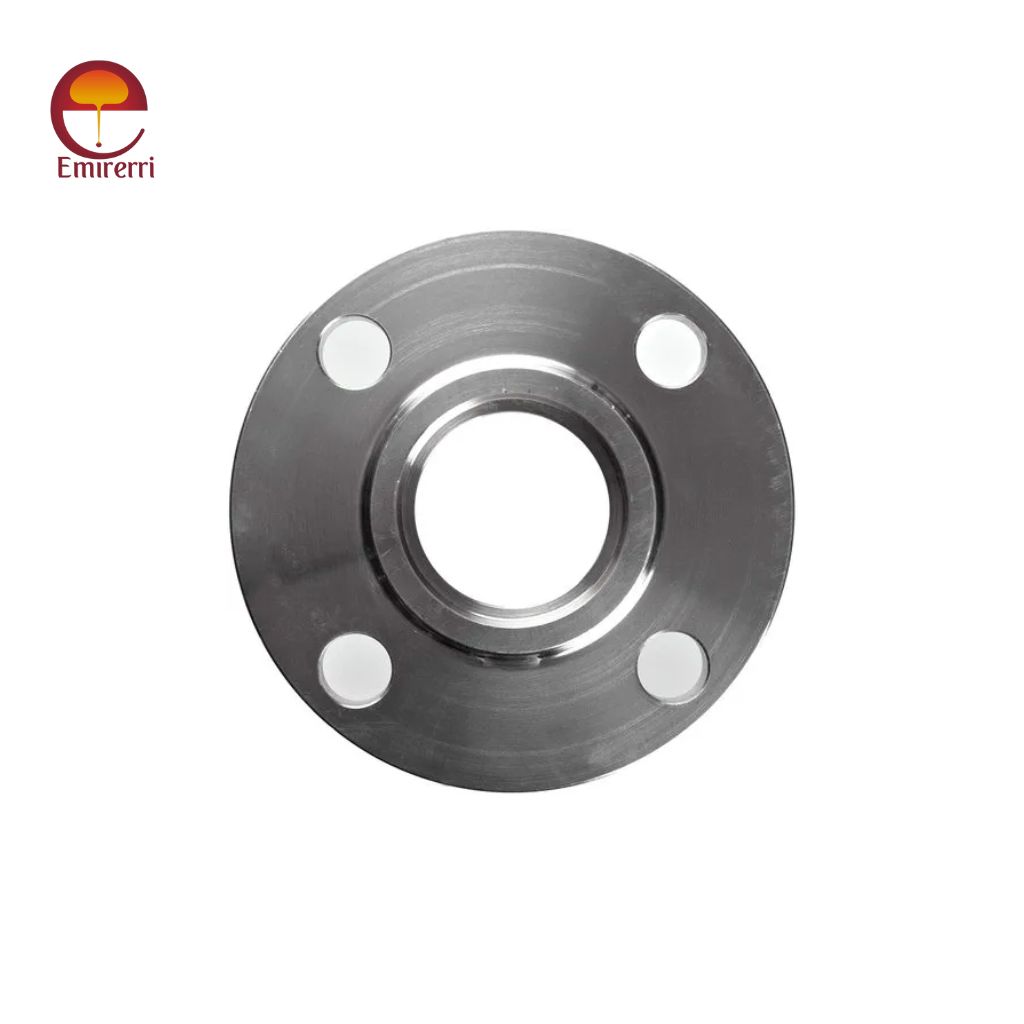
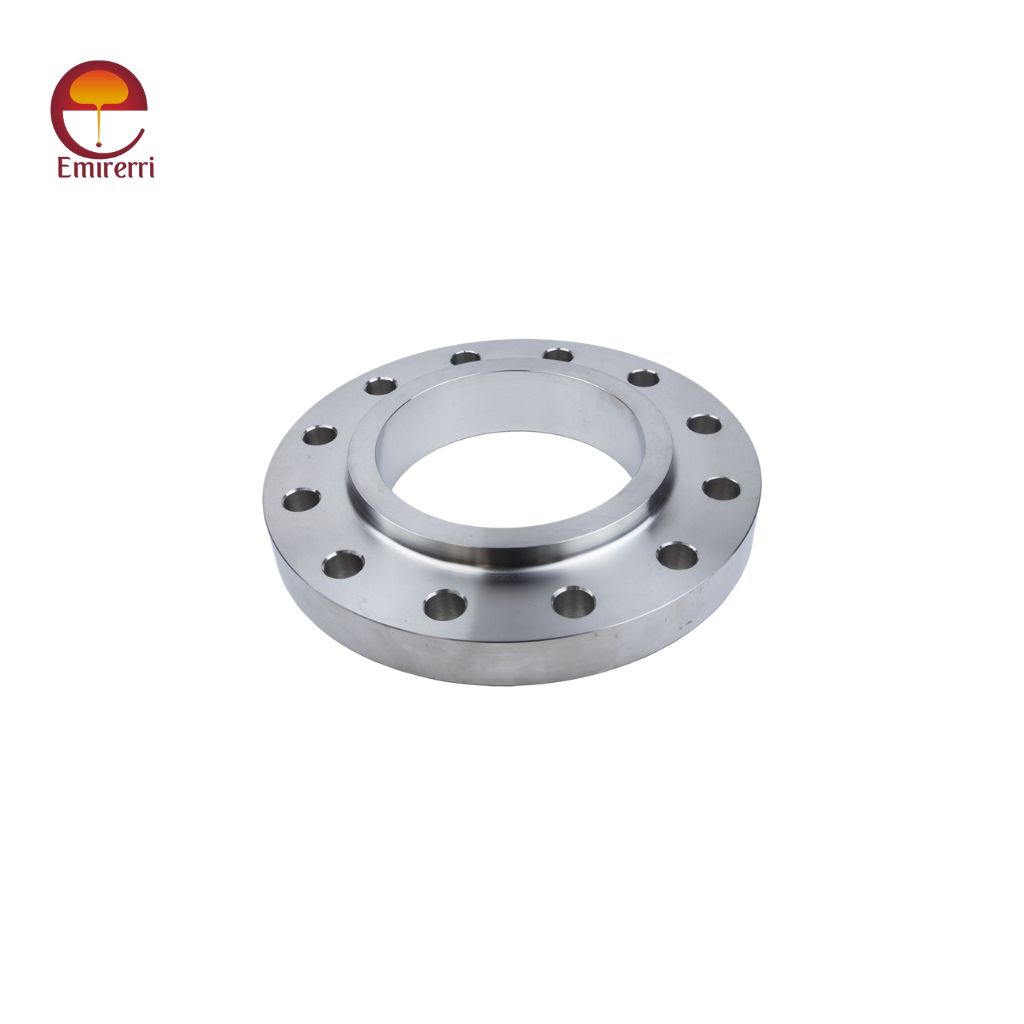
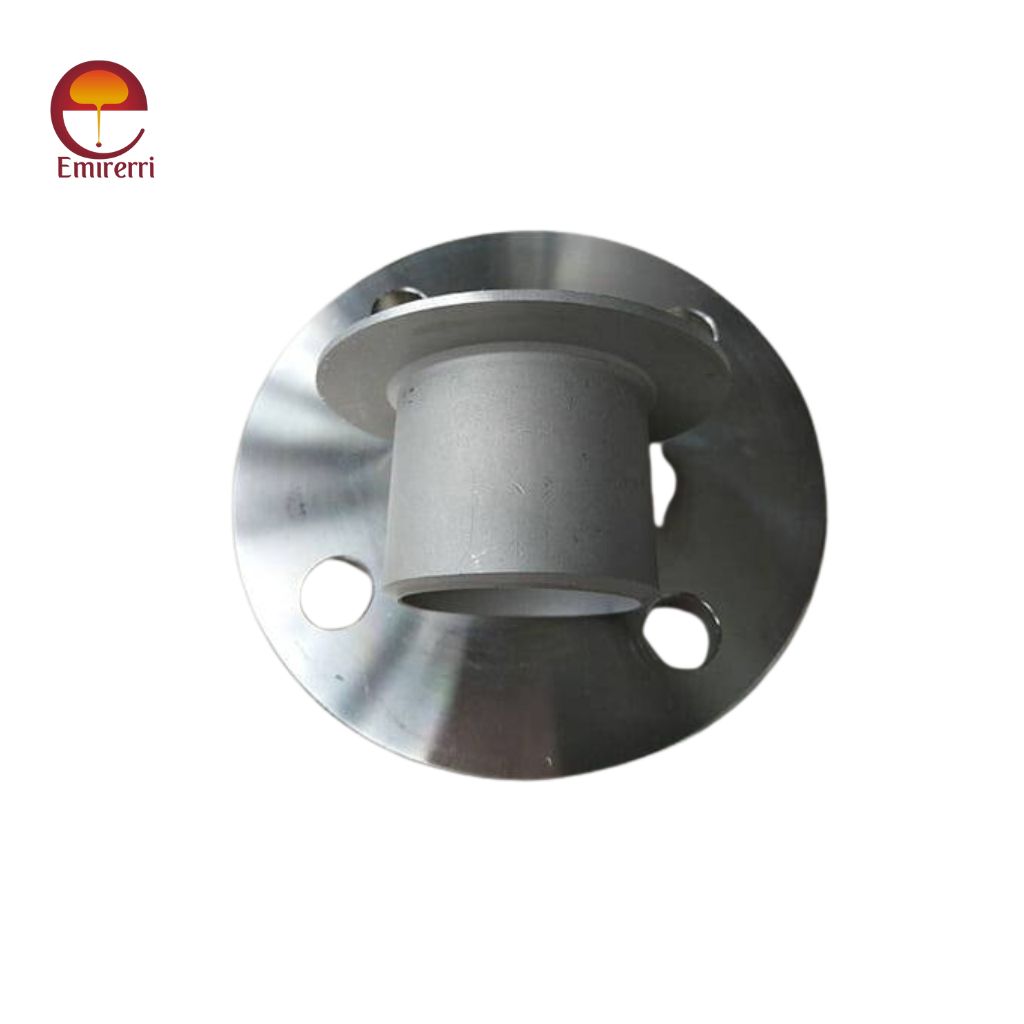
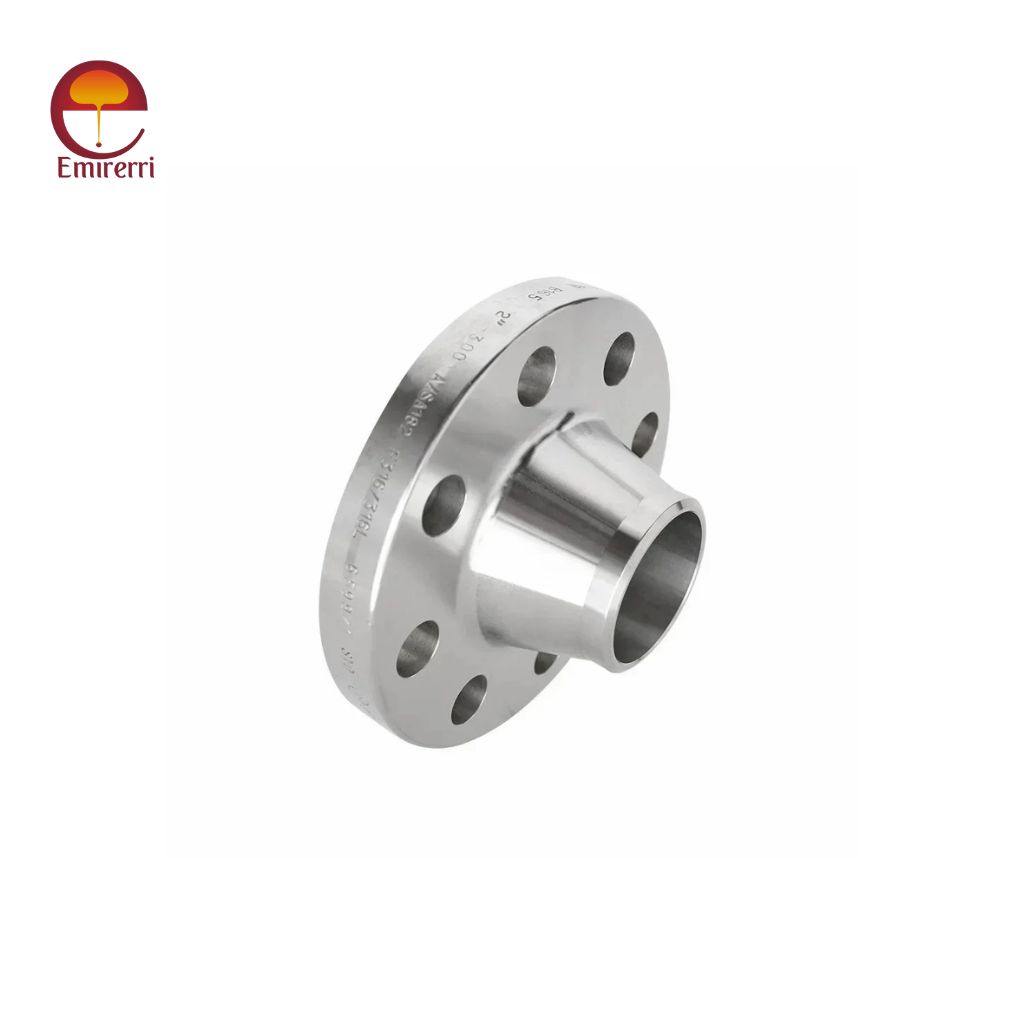
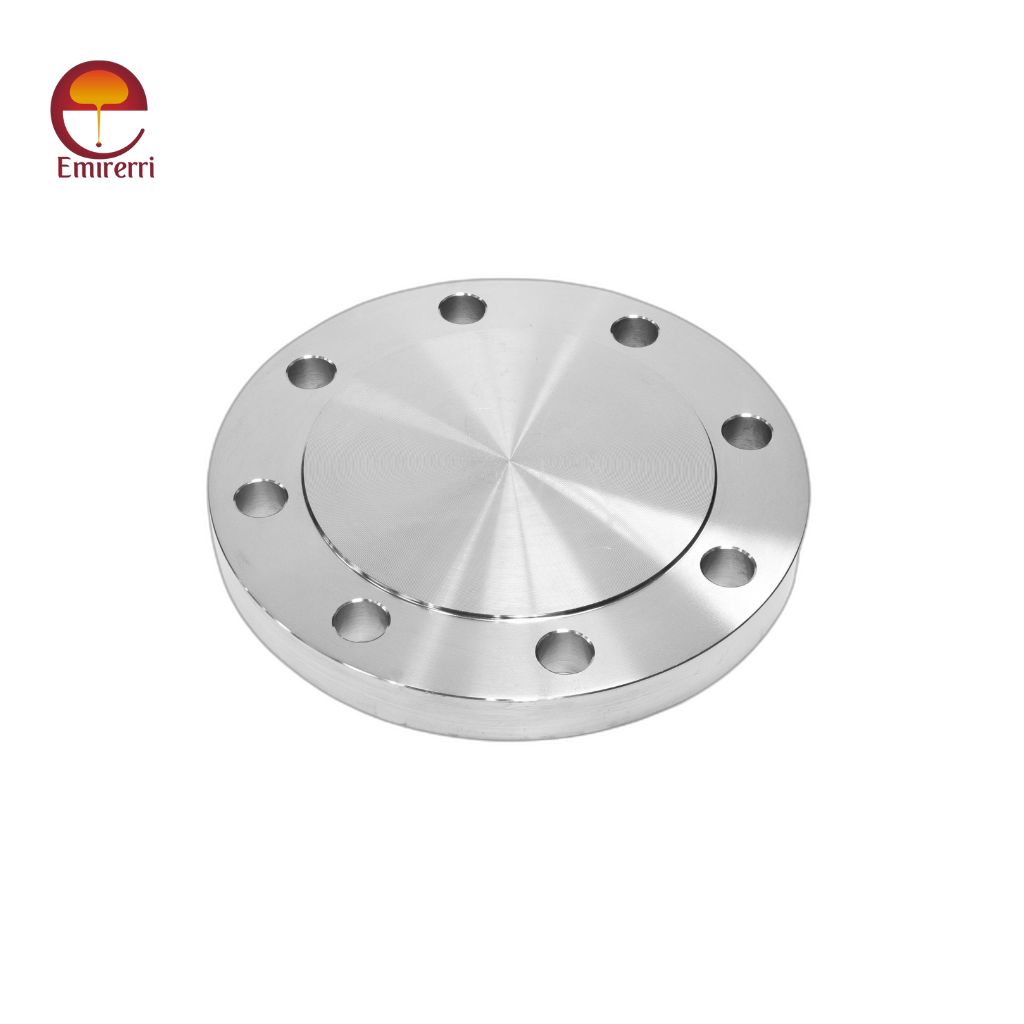
Specifications
| Specification | Details |
|---|---|
| Standard | ASTM A182 / ASME SA182 |
| Grade | F430 |
| UNS Number | S43000 |
| WNR Number | 1.4016 |
| Material Type | Ferritic Stainless Steel |
| Form | Forged Flanges, Fittings, Valves, Components |
| Manufacturing Process | Forged / Rolled / Heat Treated |
| Pressure Class | Class 150 to 2500 |
| Size Range | ½” NB to 48” NB (DN15–DN1200) |
Equivalent Grades
| Standard | Equivalent Grade |
|---|---|
| AISI | 430 |
| UNS | S43000 |
| EN | X6Cr17 |
| DIN | 1.4016 |
| JIS | SUS430 |
Available Sizes
Nominal Bore Size: ½” NB to 48” NB
Pressure Ratings: Class 150, 300, 600, 900, 1500, 2500
Flange Face Types: Raised Face (RF), Flat Face (FF), Ring Type Joint (RTJ)
Standards: ANSI B16.5 / B16.47 / MSS SP-44 / API 605
ASTM A182 F430 Chemical Composition
| Element | Composition (%) |
|---|---|
| Carbon (C) | ≤ 0.12 |
| Manganese (Mn) | ≤ 1.00 |
| Silicon (Si) | ≤ 1.00 |
| Phosphorus (P) | ≤ 0.040 |
| Sulfur (S) | ≤ 0.030 |
| Chromium (Cr) | 16.0 – 18.0 |
| Nickel (Ni) | ≤ 0.75 |
| Iron (Fe) | Balance |
ASTM A182 F430 Mechanical Properties
| Property | Value |
|---|---|
| Tensile Strength | 450 MPa (min) |
| Yield Strength (0.2% offset) | 275 MPa (min) |
| Elongation | 22% (min) |
| Hardness (Brinell) | ≤ 183 HB |
ASTM A182 F430 Physical Properties
| Property | Value |
|---|---|
| Density | 7.7 g/cm³ |
| Melting Range | 1425–1510°C |
| Modulus of Elasticity | 200 GPa |
| Thermal Conductivity | 25 W/m·K at 100°C |
| Electrical Resistivity | 0.60 μΩ·m |
| Magnetic Properties | Ferritic – Magnetic |
Corrosion Resistance
ASTM A182 F430 flanges provide moderate corrosion resistance in oxidizing environments. They perform well in air, organic acids, and nitric acid, but are not suitable for chloride-rich or reducing environments. The high chromium content forms a stable passive film, protecting the material from rust and scaling.
Heat Resistance
This grade offers excellent oxidation resistance up to 870°C (1600°F) under continuous service and up to 815°C (1500°F) for intermittent service. It maintains mechanical integrity and resists scaling in thermal cycling operations.
Heat Treatment
Annealing Temperature: 760–815°C followed by air cooling
Hardening: Not hardenable by heat treatment (only by cold working)
Stress Relieving: 650–700°C for optimal dimensional stability
Welding
While ASTM A182 F430 can be welded using conventional techniques (TIG, MIG, or spot welding), preheating to 150–200°C and post-weld annealing are recommended to avoid cracking and restore ductility. Matching or compatible filler metals such as AWS E430 or E308L are generally used depending on joint design.
Fabrication
The alloy offers good machinability and moderate formability. Cold working should be minimized to prevent embrittlement. Machining is easier than austenitic grades due to its ferritic structure. It can be easily cut, drilled, and turned using standard tooling techniques.
Applications
Heat exchangers and condensers
Boiler and pressure vessel components
Automotive exhaust manifolds and mufflers
Petrochemical and chemical processing equipment
Furnace parts and burners
Flanges, valves, and fittings for oxidizing conditions
Architectural and decorative trim
